
The Business of Fashion
Agenda-setting intelligence, analysis and advice for the global fashion community.

Agenda-setting intelligence, analysis and advice for the global fashion community.

Brazilian retail moguls know how to make a big impression. For decades the most successful among them have created sprawling chains of supersized stores, amassing fortunes that would be unimaginable in other markets. Today, even the avatars these giants use to generate marketing buzz tend to operate on a scale fit for a country the size of a continent.
Take the 25 million-strong army of fans following Lu, a virtual influencer created by Magazine Luiza, the colossal Brazilian retailer once led by the country’s second richest woman, multi-billionaire Luiza Helena Trajano. The social media community that grew up around this pixelated brunette is leveraged by the likes of Adidas and other brand partners while images in her feed are used to lure new fashion brands and consumers into the retailer’s fold.
One recent coup for the mononymous avatar was a deal that Magalu, as Magazine Luiza is known colloquially, struck with Vogue Brazil to have the influencer appear on the cover of the luxury title’s digital edition. It is a clear sign that the retail giant founded 65 years ago selling millions of mass-market products has its sights set on making fashion one of its strongest categories.
“Lu is [definitely] part of our fashion strategy,” concedes Silvia Machado, Magalu’s fashion director, who was appointed to the role in 2020 after stints at Arezzo & Co, Dafiti and C&A. But the company’s virtual influencer was also created “to help the internal team, customers and Brazilians to stop being afraid of technology and digitalisation,” she adds.
ADVERTISEMENT
Fashion and personal care products have always competed for attention with electronics, appliances, groceries, furnishings and homewares, across Magalu’s vast network of 1300 physical stores in 21 of Brazil’s 26 states. The character Lu, conceived as early as 2003 just when e-commerce emerged as a viable option for traditional brick-and-mortar players like Magalu, became a novel way of highlighting the womenswear category.
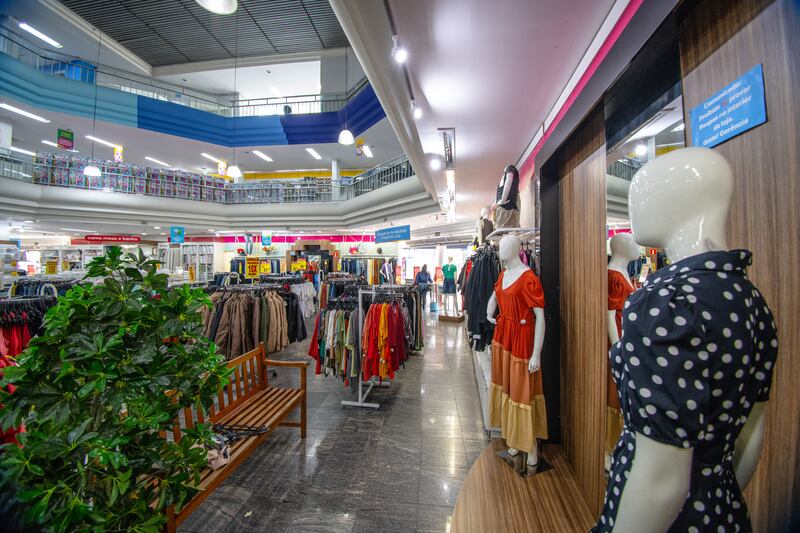
First used as a virtual sales associate and technology product expert for their online channels, Lu was later deployed elsewhere as Lu do Magalu (“Lu from Magalu” in Portuguese as the avatar’s Instagram handle is now called). These days, she is so pervasive that the retailer even includes a written statement in its annual report attributed to this non-human whose broad grin is as much a signature as the many outfits she wears in the same shade of blue as the company logo.
But the Trajano clan’s aim is not only to use their firm’s digital prowess to create an omnichannel business to win in Brazil’s highly competitive multi-category retail market where it is pitted against rival giants like Lojas Americanas, Amazon and Mercado Libre; their sights are now set on Magalu becoming a standout player in the fashion category where there are many more competitors.
In the same way that some in the US question whether Amazon can ever gain enough credibility in the American fashion industry to make gains on global and local fashion retailers there, leaders in Brazil wonder whether Magalu can make a breakthrough in Brazil.
Paula Merlo, however, has no doubt that it can. “In the next few years, Magalu will be the biggest fashion retailer in Brazil,” predicts Vogue Brazil’s editor-in-chief. “Unlike other retailers, they are betting hard [on fashion] and they are investing significantly in artificial intelligence and data; they have been getting to know their customer like no other brand in Brazil.”
Merlo adds that Magalu’s customer base is also very diverse, ranging from lower- and middle-income consumers to even some of the nation’s wealthiest. While this could help spread risk in a market defined by political and economic uncertainty, it also begs the question whether a leviathan like Magalu can fine tune its fashion offering and identity enough to become a true style destination.
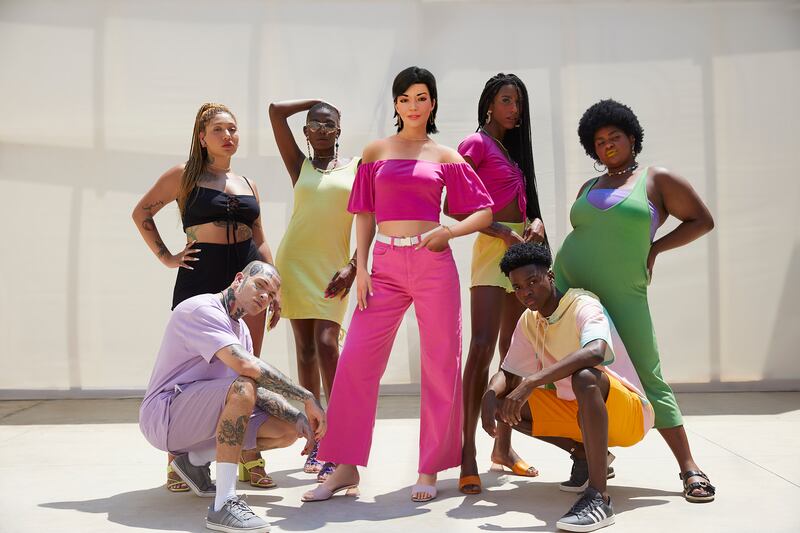
Pioneering Brazilian online retail for decades
With humble beginnings in the 1950s as a gift shop in a small city deep in São Paulo state, the family firm has evolved into a booming e-commerce and online marketplace business offering banking and insurance services.
ADVERTISEMENT
“Magazine Luiza always believed in innovation,” said the niece of its founders and its current chairwoman Luiza Helena Trajano, in a pre-pandemic interview with Messe Dusseldorf’s TV channel for EuroShop.
“In 1991, we created our first digital channel which we called our electronic shop. Our customers had the ability to order products through this digital catalogue. Our message back then was that Magazine Luiza is bringing the twenty-first century future store to the customer [now]. That was at a time when the internet was not widely known and nobody believed in digital shopping.”
At the company’s network of micro shops in the 1990s, customers could order from a computerised catalogue for home delivery. The turn of the millennium saw Magalu’s pioneering digital strategy continue as the retailer launched a website in 2000, much earlier than others in the Brazilian market.
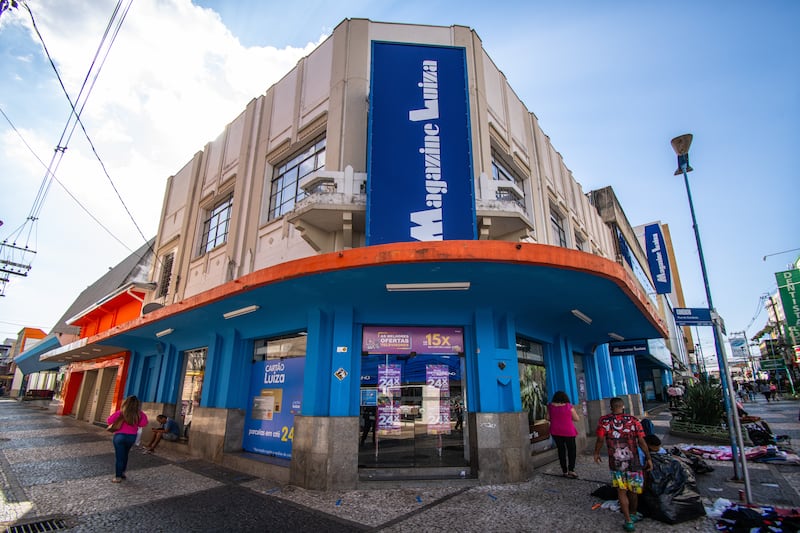
Thanks to continued substantial investment in technology and digital channels over the past six years, the retailer has grown significantly, with the pandemic further fuelling their online business. In 2020, the company’s total sales grew 59 percent to 43.5 billion reais ($7.7 billion) year-on-year. In 2019, pre-pandemic, 45 percent of sales had come from online; that share increased to 66 percent in 2020.
Today, the company is mainly focused on growing and improving its marketplace business which launched in 2018. That has become a pivotal part of its plan to gain a stronger foothold in the fashion industry. Boosting Magalu’s marketplace operations further will allow the retailer to accelerate the onboarding of Brazil’s smaller fashion brick-and-mortar retailers and factories onto its platform. The firm already boasts over 120,000 sellers across all its categories.
There is plenty of growth ahead for Brazilian e-commerce. According to a recent report by Ebanx, a Brazil-based fintech company that has worked with the likes of Amazon, Alibaba, Shopee, Spotify, and Uber in Latin America, the Latin America region is a hypergrowth market, where e-commerce is expected to grow 30 percent annually through 2025. Brazil accounts for 53.7 percent of the region’s e-commerce market, representing the largest share.
The race to build Latin America’s WeChat
One pillar of Magalu’s vision is to have a specialised user experience for fashion, Machado explains. This is especially true for the retailer’s so-called “super-app” which allows customers to do everything from ordering groceries and taking online courses to managing their finances and much more.
ADVERTISEMENT
It was this namesake app — which now counts 38 million monthly active users — that drove a substantial part of the retailer’s recent digital gains. For this reason, mobile is a key part of a broader strategy to turn the brick-and-mortar chain into a tech-led retailer by applying some of the ecosystem principles behind China’s WeChat super-app.
“I came back from China with this ambition... to do what Tencent [WeChat’s parent company] and Alibaba are doing there... no more barriers between digital and physical,” chief executive Frederico Trajano, reportedly told investors and analysts in São Paulo in a meeting two years ago.
According to Machado, Magalu’s most recent major shift came when Frederico Trajano took over as CEO from his mother Luiza Helena Trajano in 2016. She had been leading the retailer since 1991.
“Fred always had the vision that the digital and the physical store should not be separated; [but rather] integrated in terms of assortment, logistics, finance, marketing and communication. It was something that nobody talked about at the time,” Machado explains.
As with most big-box multi-category retailers, however, even though Magalu’s online channels are designed to be versatile, the user experience still tends to skew toward selling higher priority non-fashion categories and big-ticket items like electronics.
Apps have become an important part of the strategy of other big retailers in Latin America, like department stores selling fashion such as Liverpool and Coppel in Mexico, and Falabella in Chile and Colombia, ranking among the most downloaded in the region. Meanwhile, Singapore-based e-commerce player Shopee brought its successful mobile-first in-app approach to Brazil, where it launched 2019.
Investing in fashion and beauty offerings
For Magalu the mobile-first approach seems to be gaining traction. From January to September 2021, in-app sales of fashion products grew 170 percent. In October, the category was revamped within the Magalu super-app and renamed “Mundo Moda.” The campaign featured national stars, such as supermodel Caroline Trentini and singers Liniker and Gaby Amarantos.
To further enhance its fashion offering, Magalu launched an affordable line of its own, called Vista Magalu (meaning “wear Magalu” in Portuguese). The campaign was led by the avatar Lu and a series of real models of diverse ethnicities and sizes to represent the inclusive offering of the label.
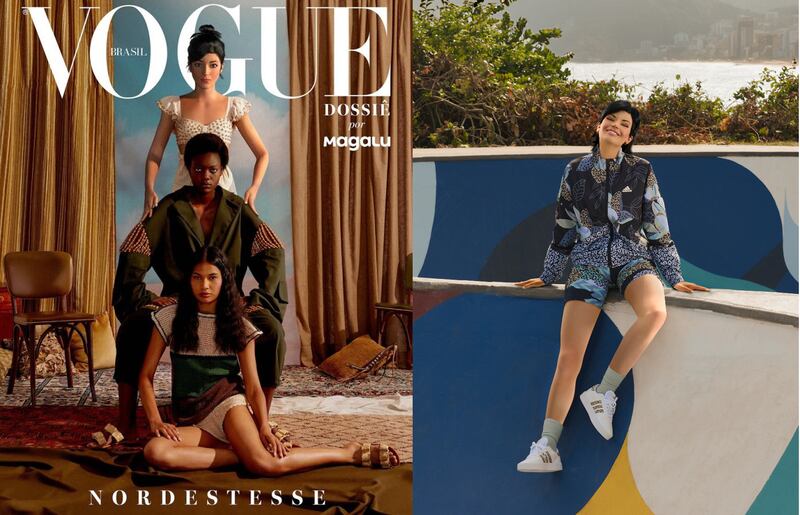
Now, the private label sits alongside notable international names like Adidas, Tommy Hilfiger, Calvin Klein, and home-grown brands like Hering, Colcci, Farm Rio and Santa Lolla, to name a few. The recent Vogue partnership promoted the launch of Magalu’s new marketplace Nordestesse, a fashion and lifestyle project featuring 18 brands from the Northeast of Brazil.
Yet Machado believes there is still a lot of untapped potential, both for first-party and third-party sales. The company estimates there are over 1.5 million fashion retailers in Brazil, only 73,000 of which have taken the first steps towards digitalisation, leaving a huge proportion of the total available market to pursue as marketplace partners.
“Fashion is still a small category within Magalu,” says Machado, explaining it currently ranks fifth in terms of traffic. “[But] to get digitalised, you need capital, audience, technology, logistics and customer service. It’s hard for smaller companies to do that on their own.”
Brazil’s apparel and footwear market is expected to be worth $26.5 billion by 2022, according to Euromonitor International. Though it is still below the pre-pandemic value of $28 billion in 2019, it is bouncing back quickly. However, Magalu is not alone in wanting a bigger slice of the country’s growing fashion market.
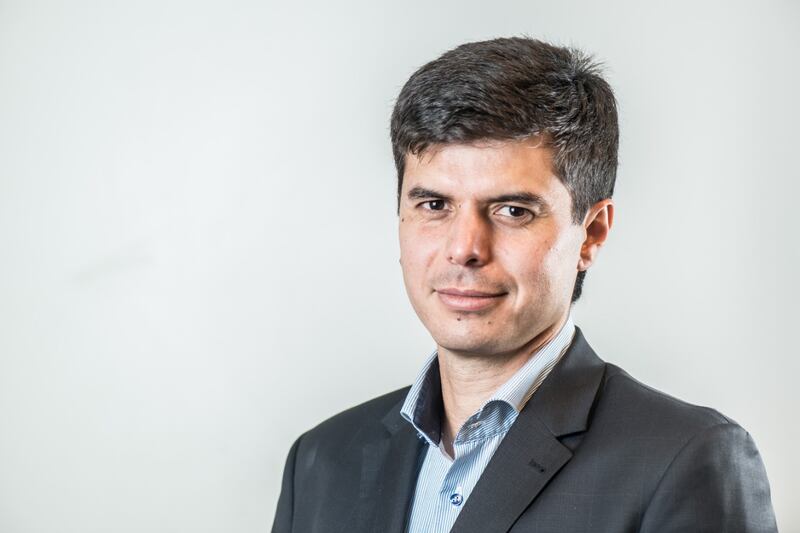
Stiff competition with Latin America’s giants
In addition to international high-street and mass market giants such as Zara, C&A and Shein (H&M has yet to enter the market), Magalu must contend with domestic digital-first players like Amaro and Dafiti as well as incumbents like Riachuelo and Lojas Renner, the biggest clothing retailer in the country.
Given the stiff competition, it’s no surprise Magalu has gone on an acquisition spree over the past two years, snapping up several online businesses — 22 to be exact — to broaden its offering, not only in fashion but across most of its categories.
In 2019 the retailer acquired Netshoes and its Zattini brand for approximately $115 million as part of a plan to bolster its online apparel and footwear retail business. And this year, Magalu bought content platform Steal the Look and female entrepreneurship platform Push from the same founders.
“Steal the Look will develop content which is relevant and inspirational for fashion and beauty,” Machado said. “When you’re selling clothes, you’re focused on price, volumes and promotion. Fashion is selling desire, design inspiration and content. There’s a huge difference.”
Matteo Ceurvels, Latin America analyst for eMarketer, believes that Magalu is a “formidable player in Brazil” against multi-category companies like Lojas Americanas, Amazon and Mercado Libre.
Citing data from the research firm’s latest analysis, he says that “although Americanas SA regained its leadership over Magazine Luiza [Magalu] during the first half of 2021, fuelled by the recent combination of the physical retail and e-commerce businesses of B2W Digital and Lojas Americanas, this notable milestone was an important testament to the efforts of the company to transform its traditional retail operations into an e-commerce powerhouse.”
A powerhouse on an acquisition spree
Another attractive category for Magalu is beauty, considering Brazil’s status as the fourth-largest beauty market in the world. The retailer made a major move into this space in 2013 with the purchase of Epoca Cosmeticos which competes with Sephora and Boticario’s Beauty Box in the market.
The online multi-brand beauty retailer has seen sales treble over the past two years.
Though Epoca already has loyal clientele, Machado says “there are still opportunities to increase awareness in beauty within the Magalu app.”
Magalu has also invested in a variety of other industries, including the purchase of book platform Estanteria Virtual in 2019 and food delivery chains Aiqfome and Grand Chef, hoping to boost its overall attractiveness as a one-stop-shop.
In a bid to reach a younger audience, Magalu made strategic acquisitions of video content platform Kabum and gaming multimedia site Jovem Nerd in July and April, respectively. Combined with its 2020 acquisition of media site CanalTech, the moves help Magalu expand its user base and the relevance of its own digital advertising platform MagaluAds.
Although Brazil’s political and macroeconomic environment was particularly challenging in 2021, with soaring inflation, interest rates reaching four-year highs and the pandemic continuing to wreak havoc, Magalu still managed to generate $40 billion reais ($7.1 billion) in sales during the first three quarters of the year. E-commerce represented 71.4 percent of the business.
Part of Magalu’s online success can be explained by the fact that it has worked hard to overcome some of Brazil’s long-standing hurdles for operating online, like logistics and payment solutions.
Its investment in Hub Fintech was used to accelerate Magalu’s financial services business six months after the creation of its payment platform MagaluPay, which has already amassed 4 million accounts, 6.6 million credit cards and has issued $15 billion reais ($2.6 billion) in credits since launching in January 2020. These figures place it among the largest digital banks in Brazil.
In terms of logistics, Magalu has acquired four companies in the past three years: Sode, Logbee, GFL and SincLog. Now, the retailer is able to carry out more than 80 percent of first-party deliveries and collects over 65 percent of third-party orders.
“We stepped up… our approach; we overcame the complexities of [operating in Brazil] and it paid off… Now we are bulletproofing our business”
Another strategic acquisition was HubSales, which helped onboard numerous factories and retailers onto the marketplace, especially in the fashion category.
Magalu’s online sales have partially offset some of the damage from closures and the economic crisis generated by the pandemic, but physical stores are still its most mature sales channel. Some outlets in the company’s vast network of brick-and-mortar stores are struggling with Brazil’s re-entry into recession.
In the third quarter of 2021, data from the Brazilian Statistics Agency IBGE showed the country’s gross domestic product (GDP) declined 0.1 percent. This year doesn’t promise much recovery according to a Central Bank survey of top-rated investment firms predicting anaemic growth. Brazil’s annual inflation hit a six-year high of over 10 percent in 2021.
Yet chief executive Frederico Trajano didn’t seem particularly fazed late last year when he told Bloomberg that regardless of the current challenges in the country, “e-commerce grows no matter what.”
Even though Brazil remains politically polarised and economic stability is far from guaranteed, Trajano seems confident that, just as Magalu has withstood many past crises over the course of its long history, the retailer can manoeuvre its way through whatever comes next.
“We have been working for 20 years to make Magalu digital,” said Frederico Trajano. “We stepped up… our approach; we overcame the complexities of [operating in Brazil] and it paid off… Now we are bulletproofing our business by being bold in helping other businesses grow.”
This week’s round-up of global markets fashion business news also features Latin American mall giants, Nigerian craft entrepreneurs and the mixed picture of China’s luxury market.
Resourceful leaders are turning to creative contingency plans in the face of a national energy crisis, crumbling infrastructure, economic stagnation and social unrest.
This week’s round-up of global markets fashion business news also features the China Duty Free Group, Uniqlo’s Japanese owner and a pan-African e-commerce platform in Côte d’Ivoire.
Affluent members of the Indian diaspora are underserved by fashion retailers, but dedicated e-commerce sites are not a silver bullet for Indian designers aiming to reach them.